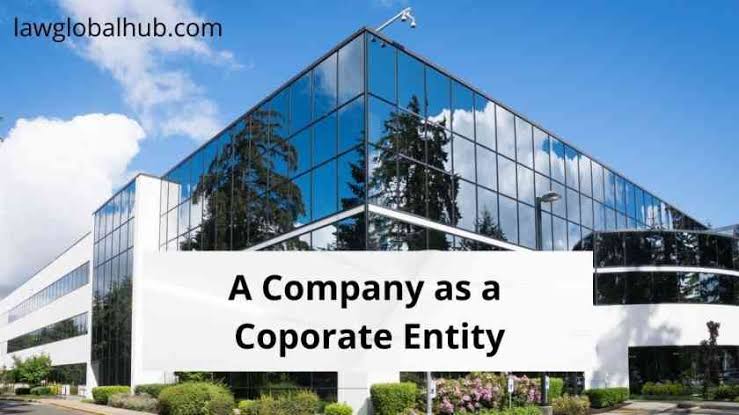N.B. This article is particular to Nigeria
A Company as a Legal entity
In modern times, the concept of ‘a person’ has gone beyond the gender classification of male, female, or groups of any other biological or scientific identity. The conduct of commercial transactions and its resultant effects have produced an expediency for the existence of a body distinct from these.
A company is capable, under law, of being regarded as a personality by incorporation. In other words, an entity made of no flesh and blood, intellect nor reasoning, without natural or material existence, that may not be touched, felt or seen, becomes a person under law.
This personality produced by law is capable of engaging in commercial transactions, like a natural person can. Certainly, natural men are the brain behind the formation of any corporate personality. However, the directors of this corporate entity are distinct from it in the eye of the law. These available legal capacities of an incorporated company have made possible the complexities involved in the conduct of modern business.
The case of Salomon v. Salomon & Co. Ltd [1897] AC 22 is generally recognized as the cornerstone of company law. This case established the principle that a company is distinct from its shareholders and would be treated as an independent entity with perpetual succession. A company has the right to sue and could be sued, in its acquisition of rights and dispositions of liabilities.
In the aforementioned case, Salomon transferred his boot making business, which he owned has a sole proprietor, to Salomon Ltd. (a company which comprised himself and his family as members). He was paid the price for the transfer by way of shares, and debentures having a floating charge on the company’s asset.
Later, the company failed and went into liquidation. Salmon’s right against debentures stood above the claims of unsecured creditors. If things were to be legally done, the other creditors would have recovered nothing from the liquidation process. Therefore, to avoid alleged exclusion, the unsecured creditors, through the liquidator, alleged that the company was nothing but an agent of Salomon. And therefore, Salomon, being the principal, should be personally liable for its debt. Evidently, the claim of the creditors has not recognized the company (Salomon Ltd.) has a separate legal personality from Salomon himself.
The Court of Appeal ruled in favour of the other creditors, declaring the company to be a myth. The court reasoned that Salomon incorporated the company in contradiction to the true intent of the Companies Act, 1862. Salomon should therefore be responsible for the debt, because the company had merely conducted business as his agent.
However, on appeal, the House of Lords reversed the above judgement, unanimously holding that since the company had been rightly incorporated, the motive of those who participated in its promotion is irrelevant. Therefore, the company is an independent legal personality with its rights and liabilities appropriate to itself. Therefore, the principle of ‘corporate veil’ between a company and its owners was firmly created by Salomon’s case.
It is now a recognized principle of company law that a company is responsible for its act, irrespective of the fact that those acts were performed through human instrumentation. The capacities of companies to sue and be sued presupposes that they could be sued for both civil and criminal liabilities. A company can also sue for both civil and criminal rights.
Domestically strengthening the foregoing, section 89 of the Companies and Allied Matters Act (CAMA) provides that “Any act of the members in general meeting, the board of directors, or a managing director while carrying on in the usual way the business of the company, shall be treated as the act of the company itself and the company is criminally and civilly liable to the same extent as if it were a natural person:’
As provided, the doctrine of ‘Separate Legal Entity’ is locally recognized and entrenched in the Nigerian Law, differentiating owners of a company from the corporate entity itself.


Leave a Reply